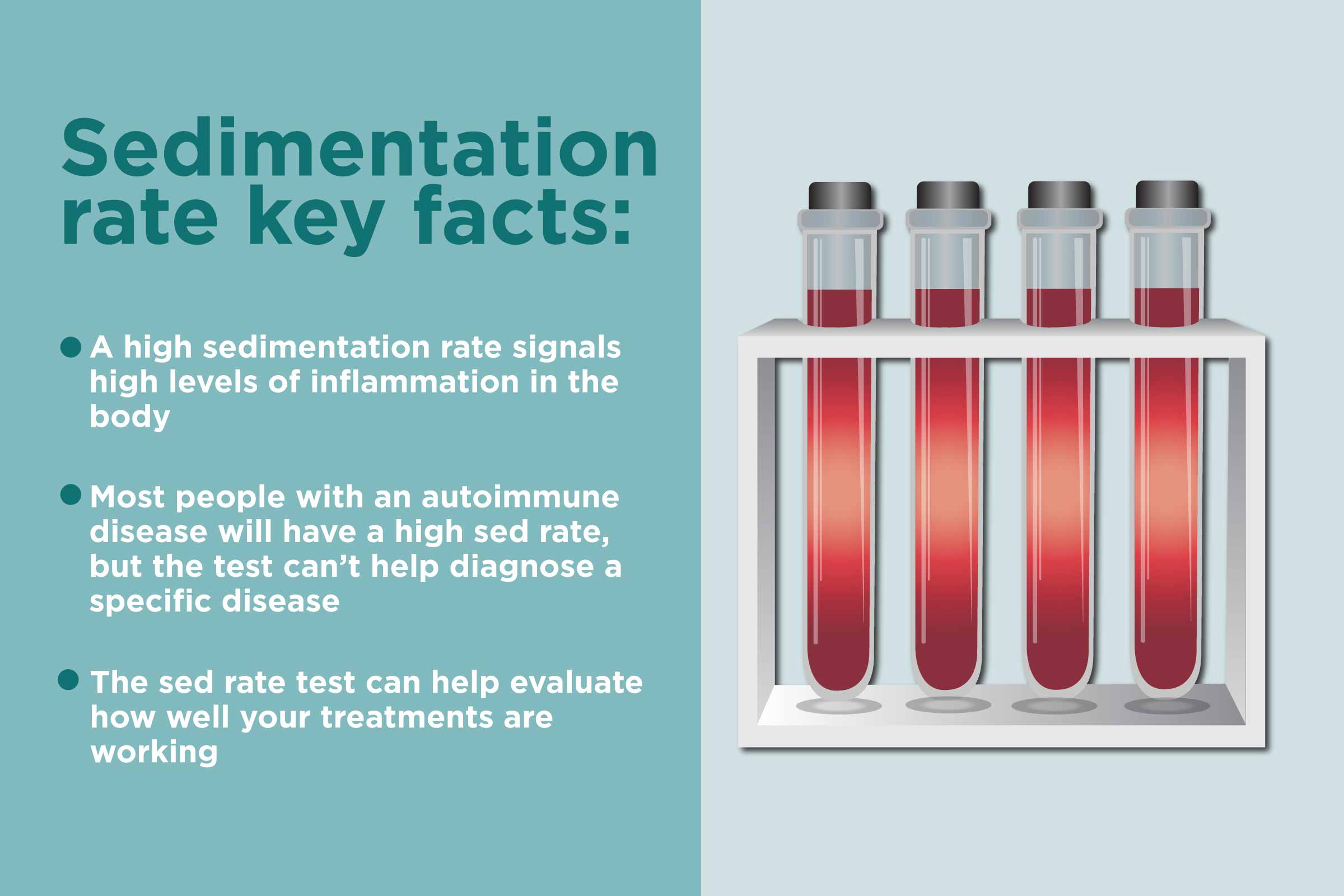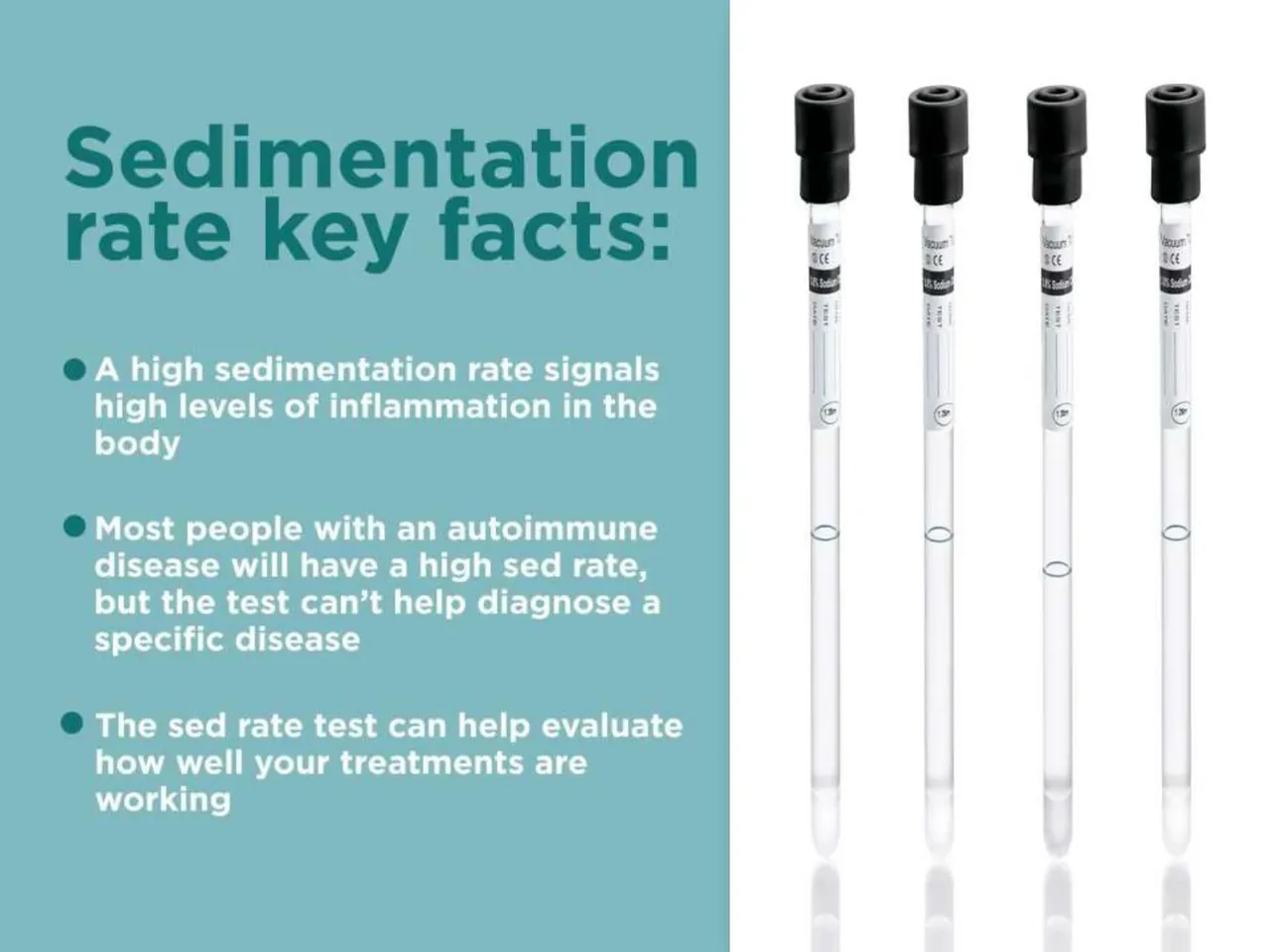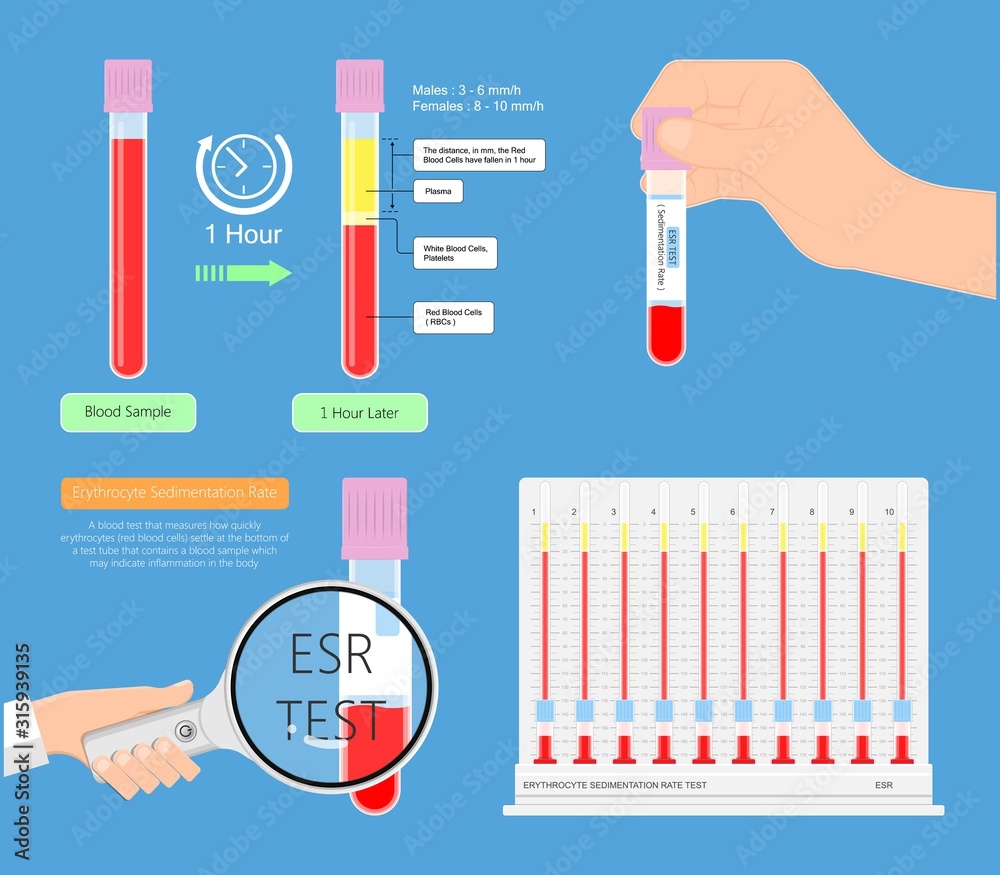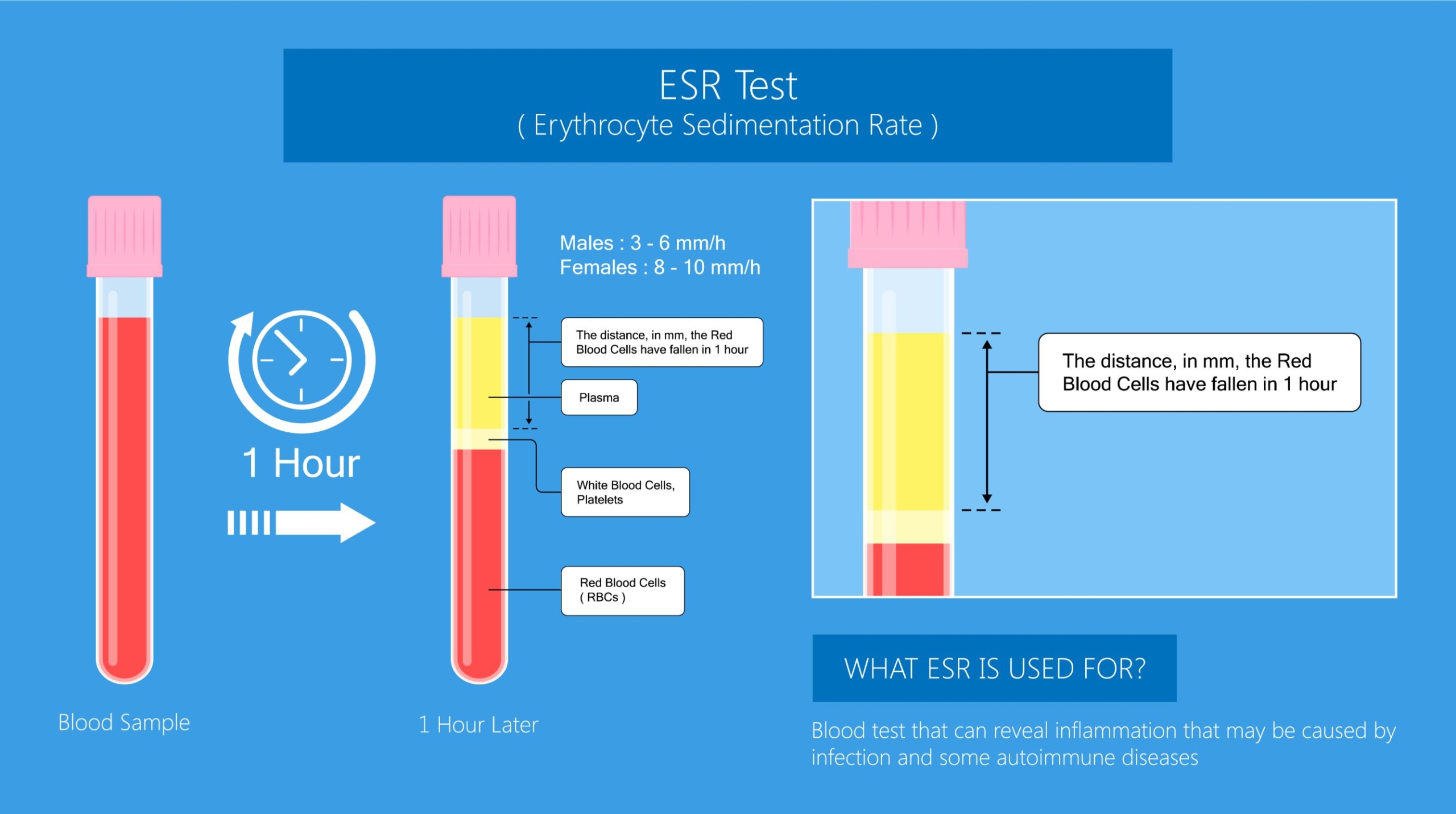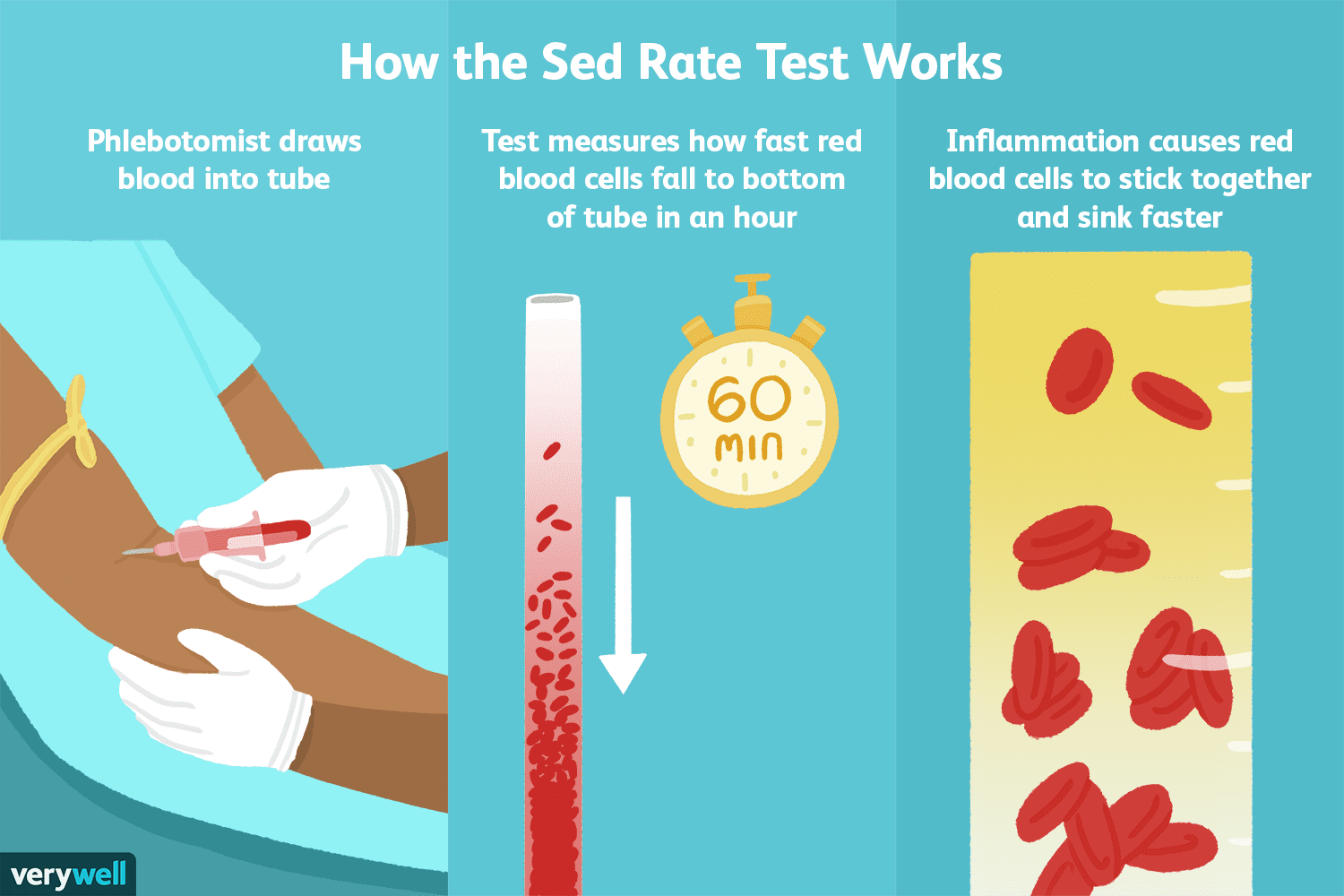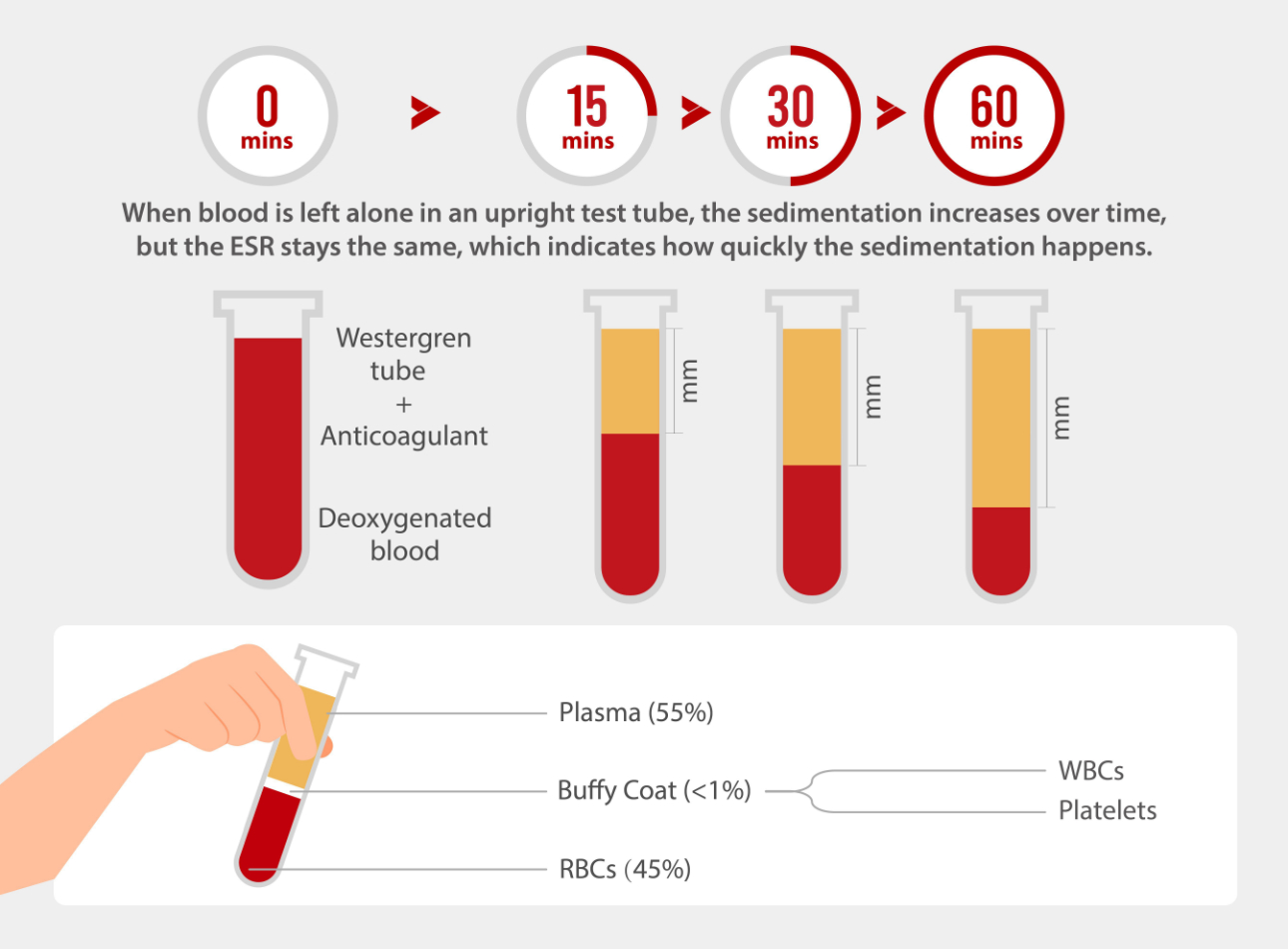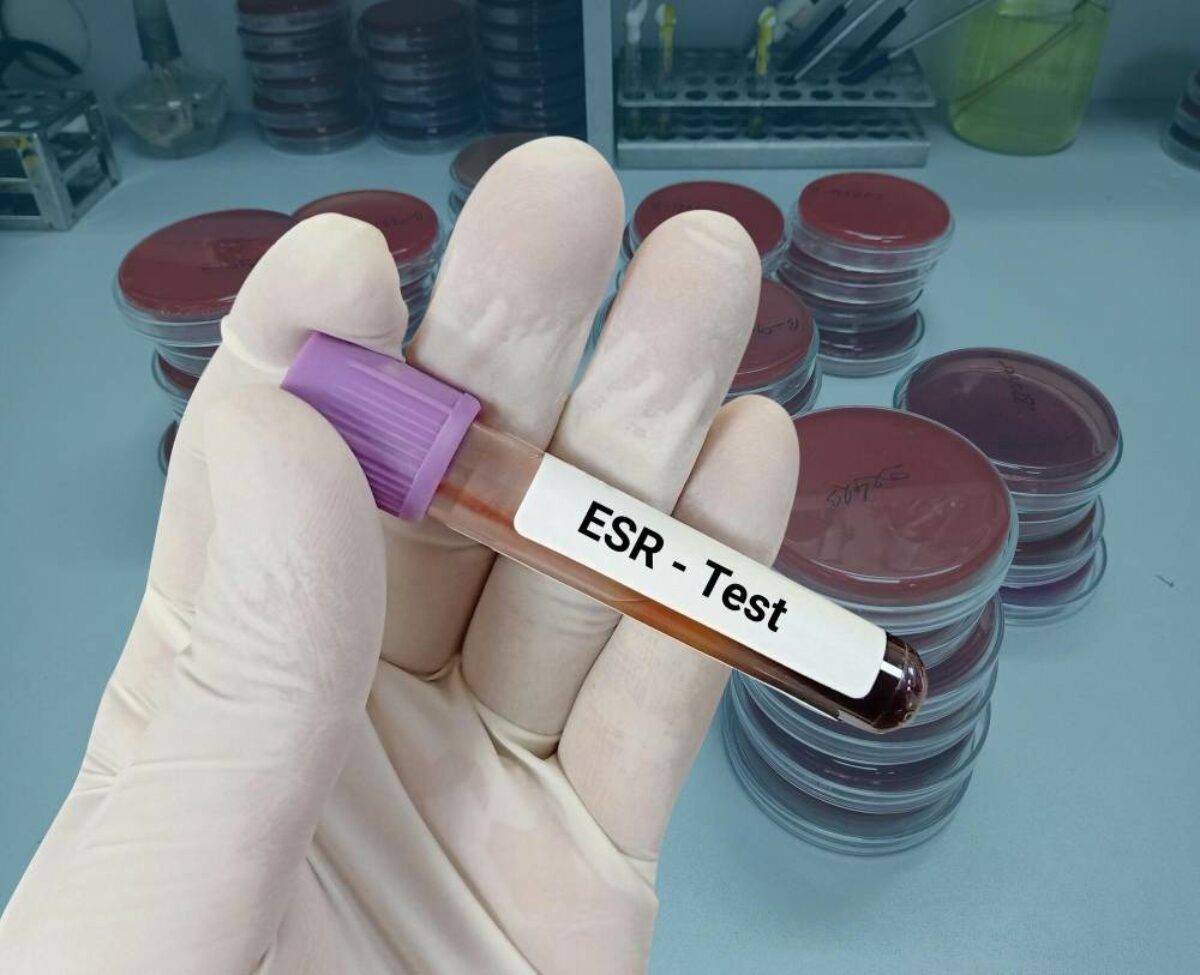
Key facts
- An erythrocyte sedimentation rate (ESR) blood test can be done to check for inflammation or infection in your body.
- ESR blood tests are non-specific, so are usually used along with other tests.
- There is no preparation needed for this test.
- It is important to speak with your doctor about your results.
What is an erythrocyte sedimentation rate blood test?
The erythrocyte sedimentation rate (ESR) blood test is often used to check for inflammation in your body.
ESR blood tests are usually used with other tests. That’s because they are not specific, and do not show the cause or location of the inflammation or other problems.
What is being tested?
In an ESR test, blood is taken from a vein in your arm and put into a tall, thin tube. The blood is then allowed to settle, and the ‘sedimentation rate’ is checked.
Inflammation causes erythrocytes (red blood cells) to stick to each other and form clumps. These clumps are heavier than normal red blood cells. So, if there is inflammation, the red blood cells will clump together and fall quickly to the bottom of the tube. If there is no inflammation, the red blood cells will settle more slowly.
After some time, there will be some clear liquid (plasma, which has no red blood cells) at the top of the tube. The ESR measures the height of the column of plasma at the top of the tube after one hour.
- A low ESR means few cells have settled.
- A high ESR means a lot of cells have settled, which can suggest inflammation.
Why would I need an ESR blood test?
Your doctor may recommend an ESR blood test as part of several tests to check for:
- infection
- an illness that causes inflammation, such as an autoimmune disease
- some types of cancer
An ESR blood test is not a specific test. Other tests are needed to identify the location and cause of the inflammation, infection or cancer.
ESR blood tests are particularly useful in detecting two specific illnesses:
- giant cell arteritis (a type of blood vessel inflammation)
- polymyalgia rheumatica
ESR blood test results may be very high (more than 100mm in 1 hour) with these conditions. ESR blood tests may be used to monitor your response to treatment if you have either of these illnesses.
How to prepare for this test
There is no preparation needed for this test.
Understanding your results
A high ESR can indicate:
- inflammation somewhere in your body
- infection
- some types of cancer, such as multiple myeloma
ESR can also increase with:
- older age
- pregnancy
- anaemia
Certain medicines can also affect your ESR result.
Some conditions, such as sickle cell disease, can cause a very low ESR result (less than 1mm in 1 hour).
It is important to speak with your doctor about your results.
